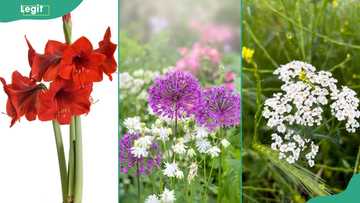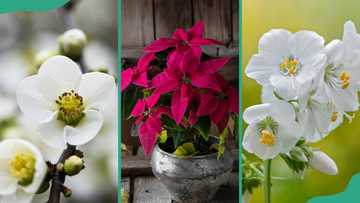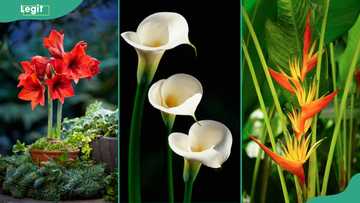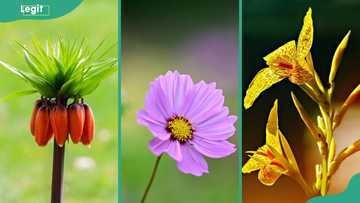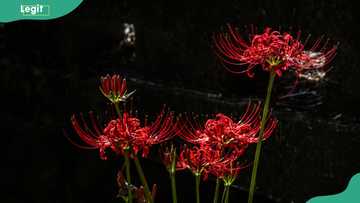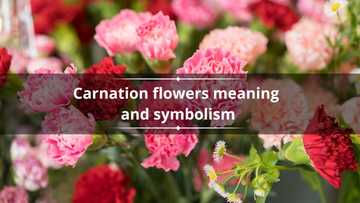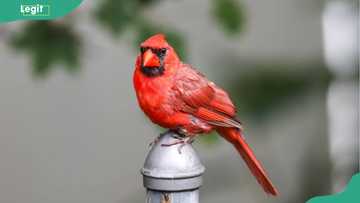23 popular Chinese flowers and what they mean in popular culture
Flowers are not just ornamental plants in Chinese culture because they have a deep history and meanings that determine how they are perceived and used. While some are used for decorations, others are presented during sombre moods. Therefore, knowing the flowers and their meanings is essential before sending Chinese flowers to anyone.
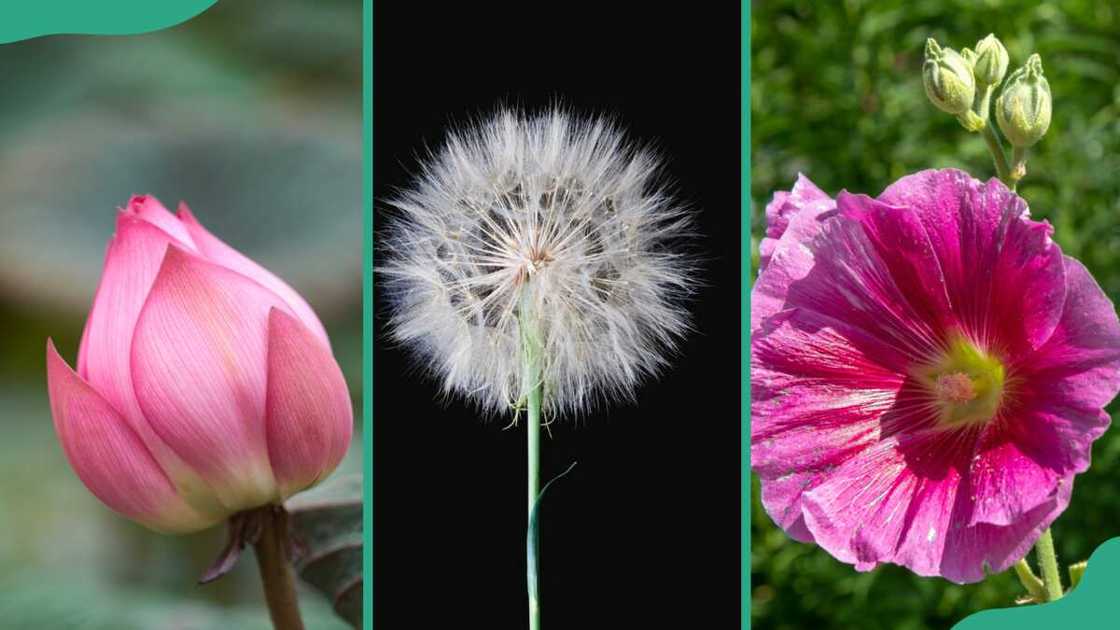
Source: Getty Images
TABLE OF CONTENTS
Chinese flowers are among the most attractive and can be grown almost anywhere. They come in different sizes and colours that suit different preferences, and some have a pleasant fragrance. However, you must not mistake them to mean the same thing. Each flower has a unique meaning and a particular use.
Most popular Chinese flowers
How many Chinese flower types do you know? Here is a compilation of the most prominent Chinese flowers and their meanings in popular culture.
1. Jasmine
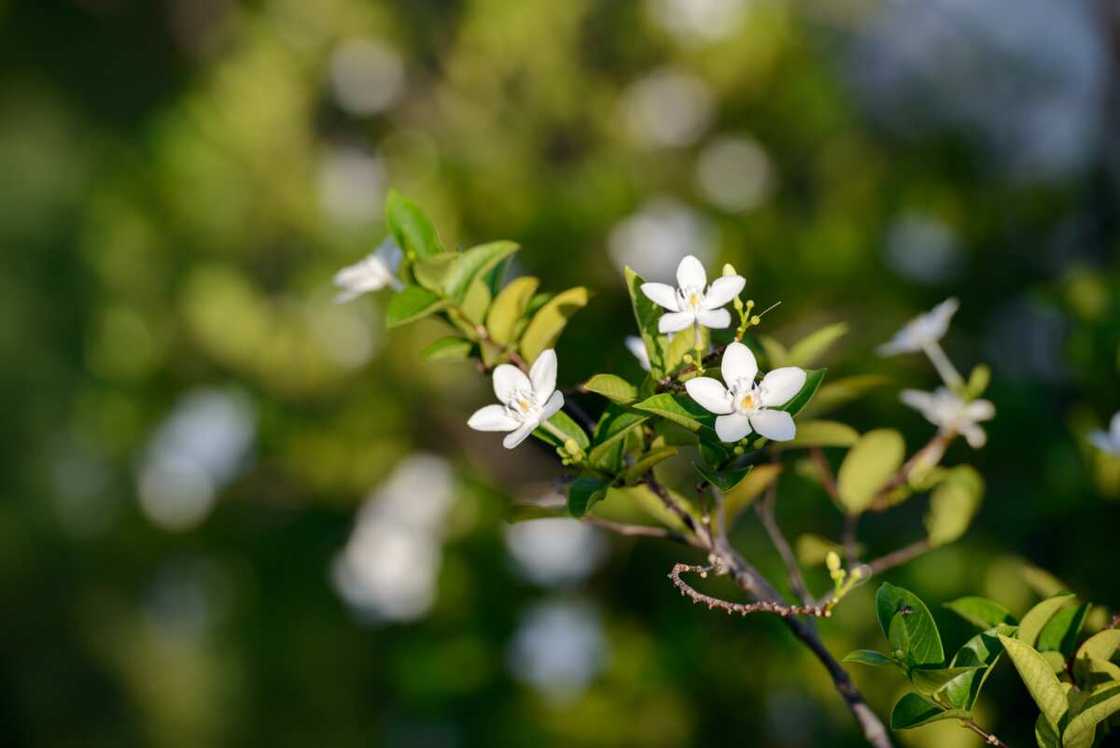
Source: Getty Images
Jasmine is among the 200 species of fragrant flowers in the olive family. It is mainly grown for its fragrant flowers, which are used to make perfumes and a wide range of scented products. This Chinese flower, which comes in white and pink, is usually presented to lovers as a symbol of devotion. It symbolises beauty, elegance, sensuality, and enduring love.
2. Lily
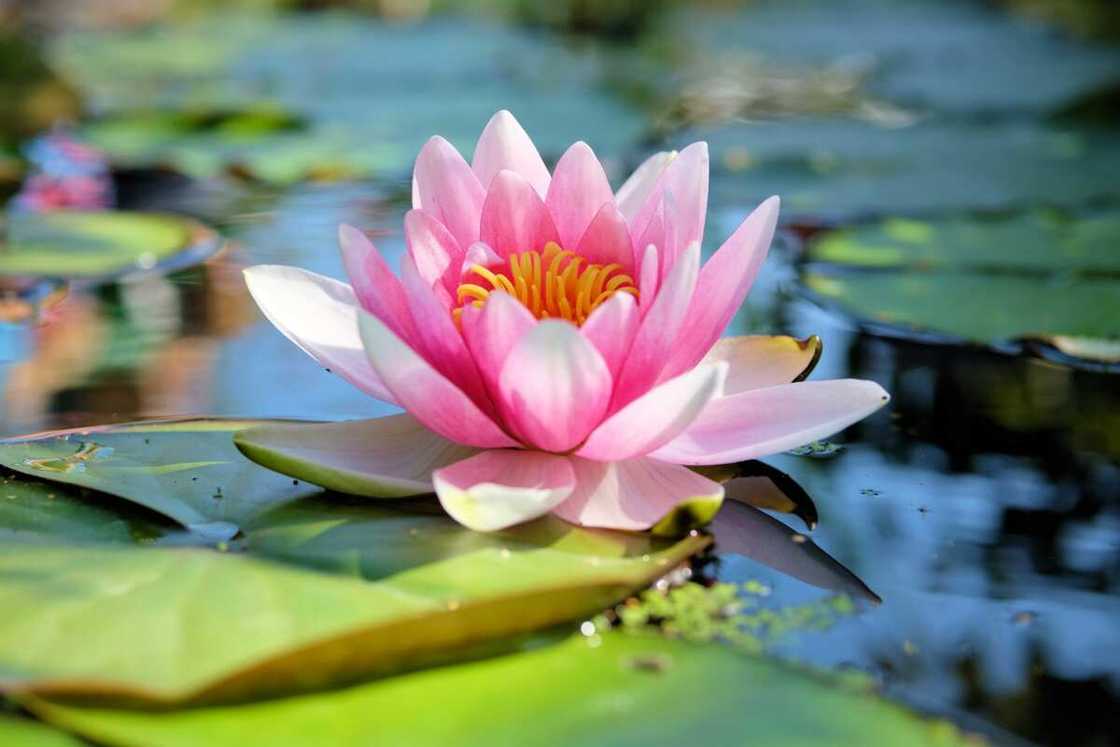
Source: Getty Images
This Chinese herbaceous plant blossoms with large, trumpet-like petals. It has numerous species with varying colours, including white, orange, yellow, pink, purple, and red. These ornamental plants are common in many weddings because they represent union, fertility, purity, renewal, and transience. In other places, lilies represent longevity and devotion.
3. Lotus
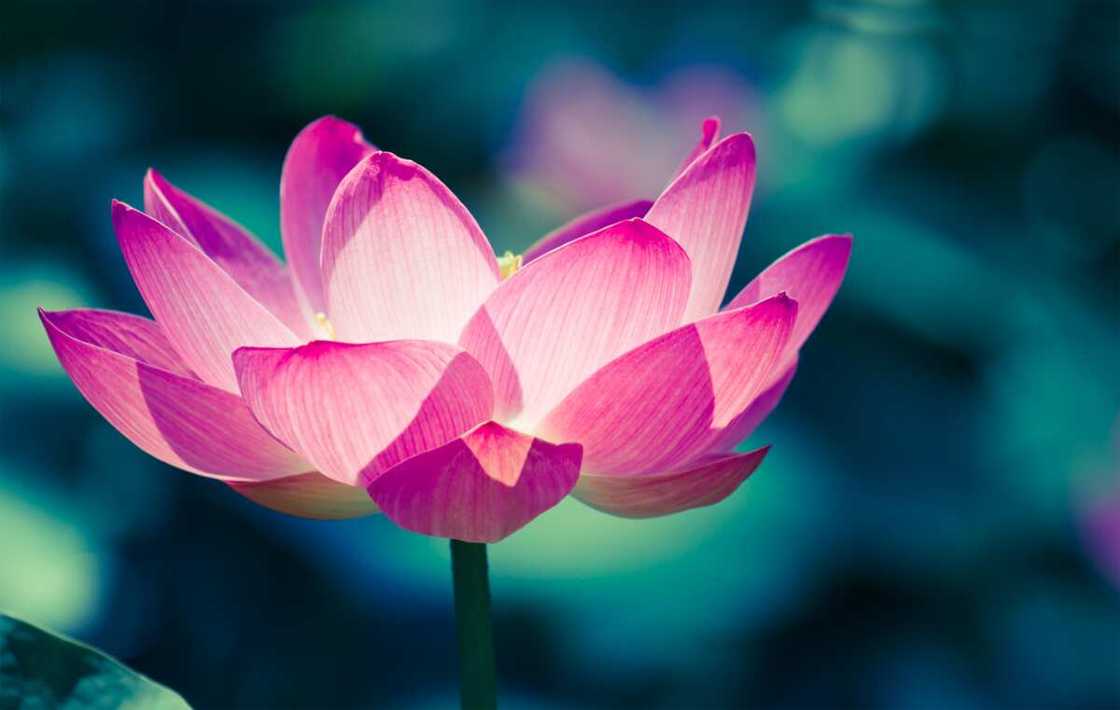
Source: Getty Images
This flower is an aquatic perennial plant that blooms above the water, unlike lilies on the water. It usually has pink and white colours and is recognised for its large and beautiful petals. This Chinese flower is associated with resilience and longevity. However, in cultures such as Buddhism, it represents enlightenment, purity, and renewal.
4. Canna
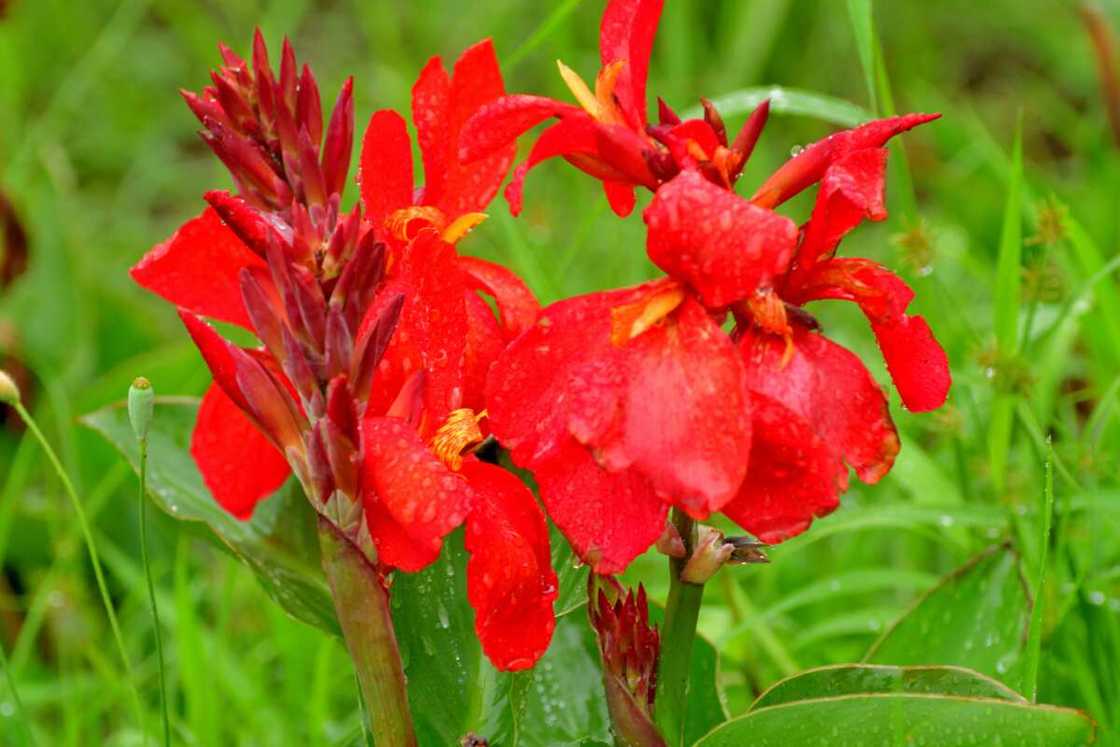
Source: Getty Images
Canna is sometimes called Canna lily due to its close resemblance to lily flowers. However, canna is not an aquatic plant. It is known for its rhizomatous rootstock and attractive petals, which come in red, orange, yellow, pink, and purple. In China, these bright-petalled flowers are a symbol of confidence and liveliness.
5. Pomegranate
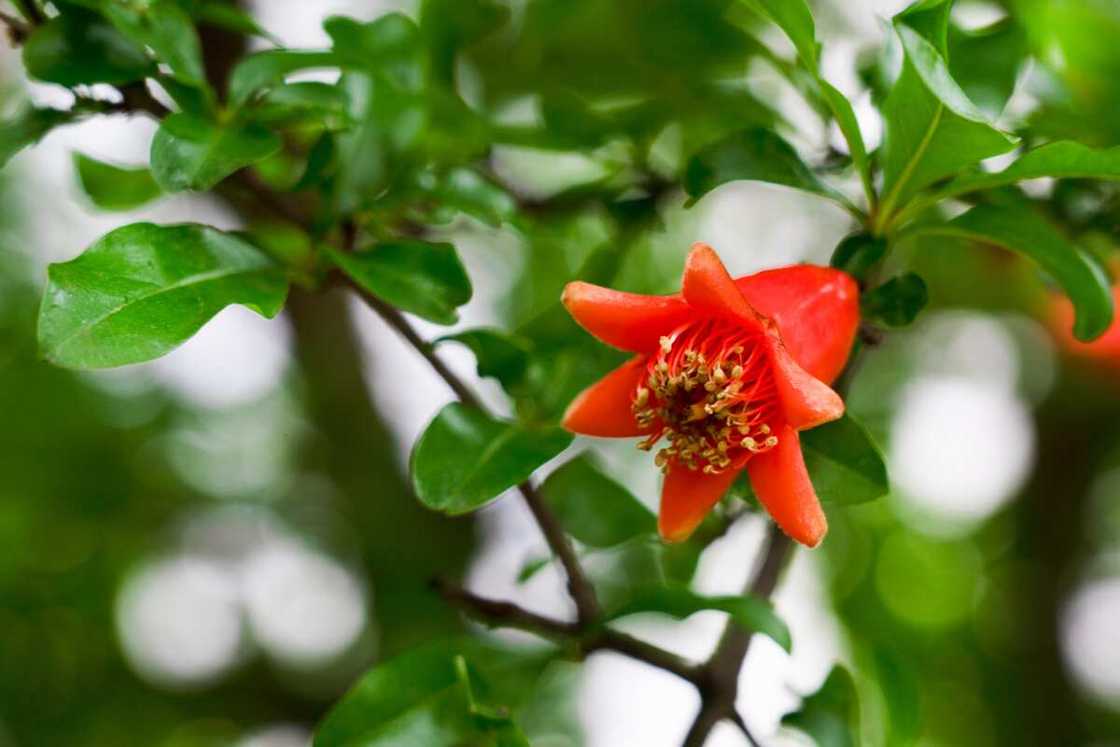
Source: Getty Images
Pomegranate flowers emerge from the pomegranate tree before the pomegranate fruits are formed. These Chinese flowers have waxy petals that can be red or orange. They represent fertility, abundance, prosperity, and success. In Greece, they also represent eternal life.
6. Rose
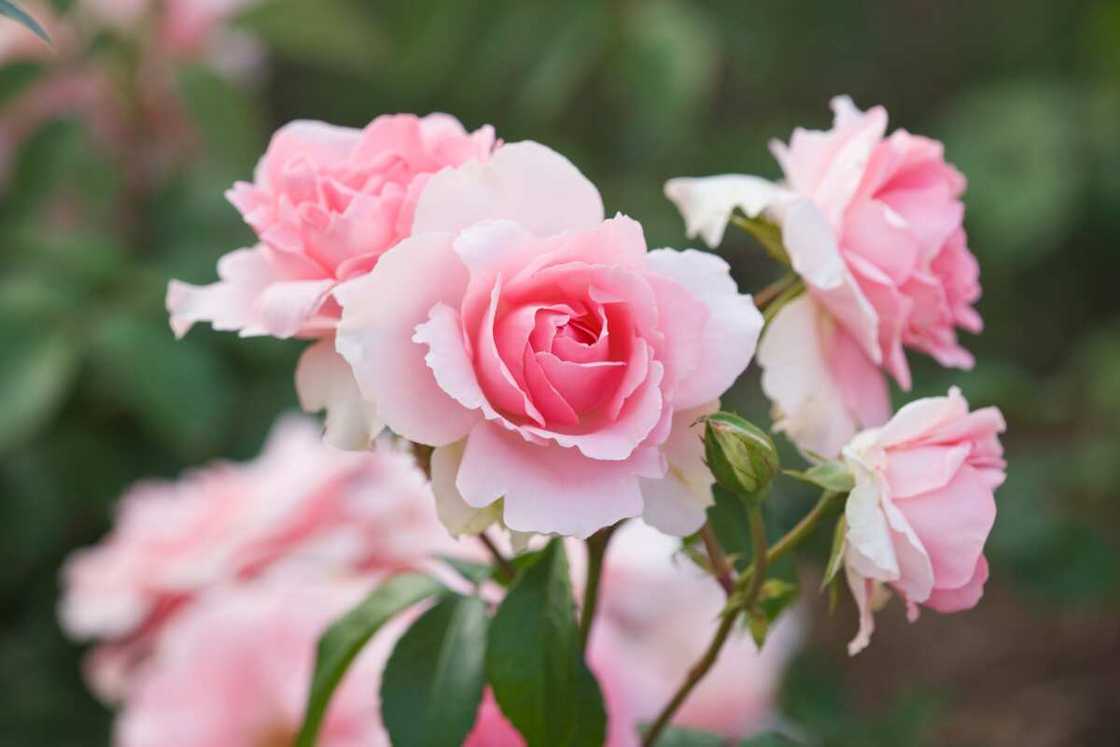
Source: Getty Images
Roses are one of the oldest Chinese flowers, dating back over 5,000 years. This woody plant has numerous wild and cultivated varieties in vibrant colours, including red, yellow, pink, white, purple, and orange. In most places, it is considered the flower that represents romance. In China, it stands for longevity and eternal spring.
7. China aster
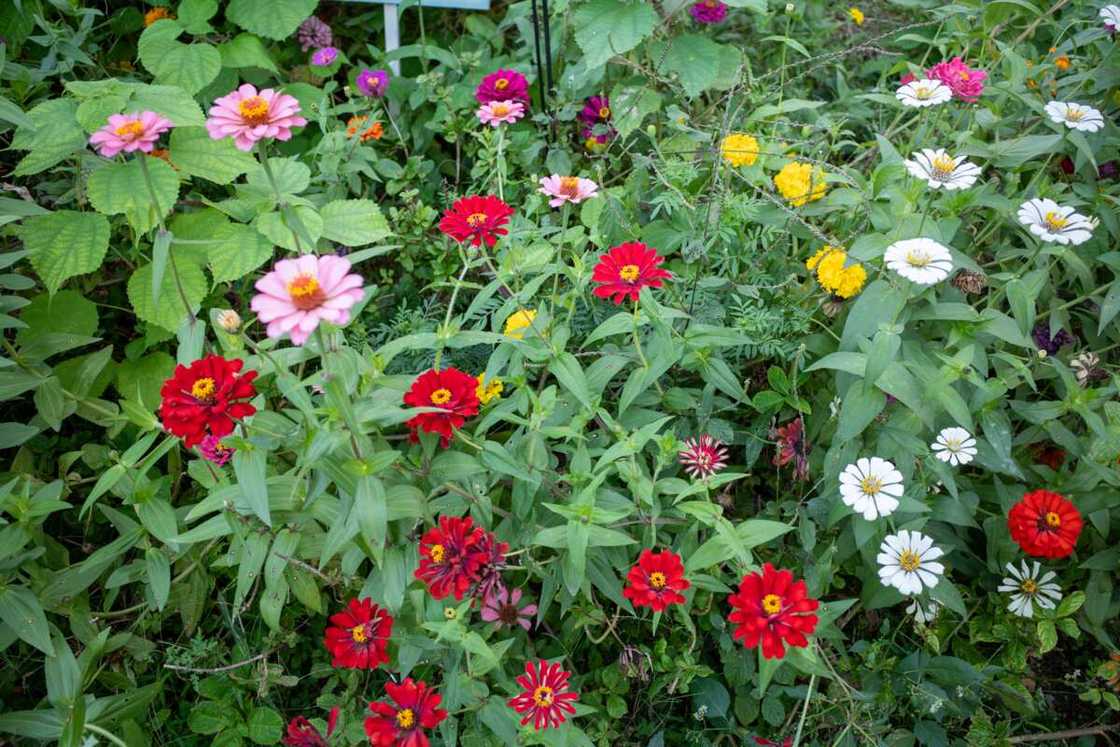
Source: Getty Images
China aster is another of the oldest Chinese flowers, and its cultivation dates back centuries. This ornamental plant has blooms of different hues, such as blue, purple, yellow, red, white, and pink. Generally, aster flowers represent patience, accomplishment, good fortune, and brilliance. However, China aster means devotion and loyalty.
8. Dandelion
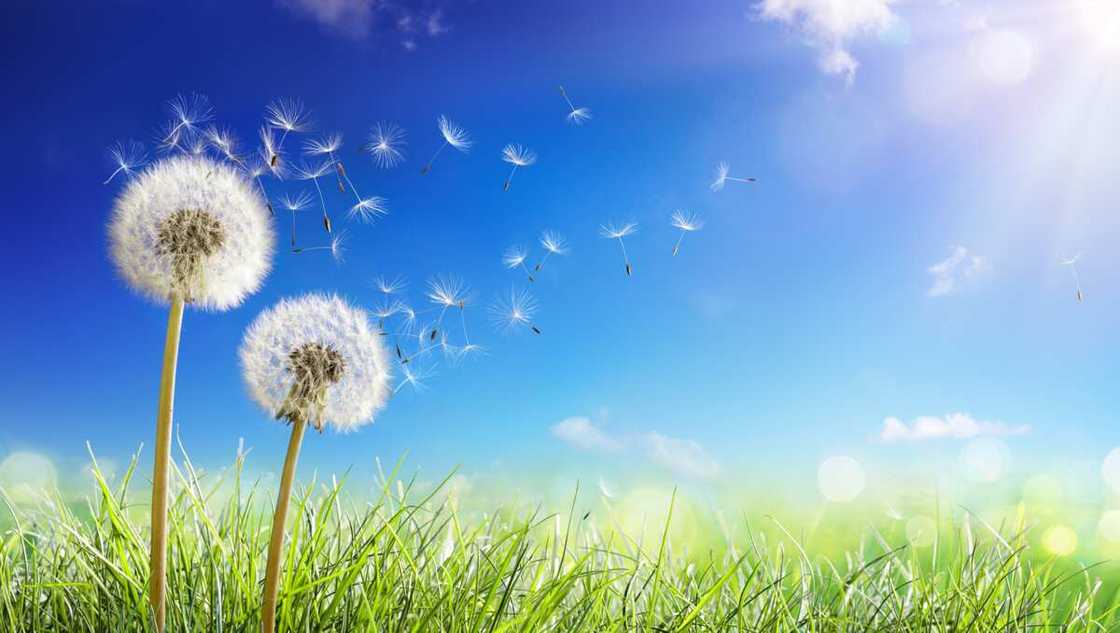
Source: Getty Images
Most people consider this Chinese flower a stubborn weed, but it holds great symbolism in Chinese culture. It has a bright yellow flower head with several individual florets. Due to its stubbornness, it is seen as a symbol of resilience. For others, dandelion represents tenacity, perseverance, and spreading happiness.
9. Gladiolus
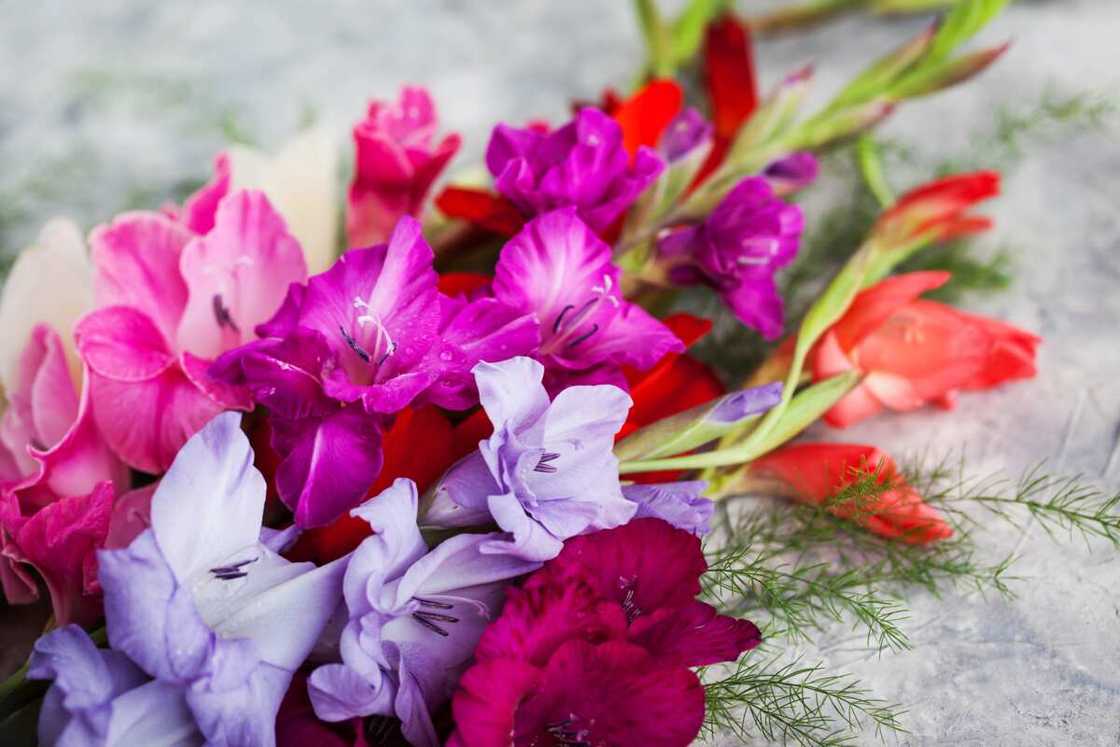
Source: Getty Images
These Chinese flowers, with tall stalks and colourful blooms, are highly valued during the Chinese New Year celebrations. They represent integrity, strength, self-growth, and career success. They are usually presented to people who have made significant achievements in their profession. They come in various colours, including red, pink, yellow, orange, purple, white, and green.
10. Hibiscus
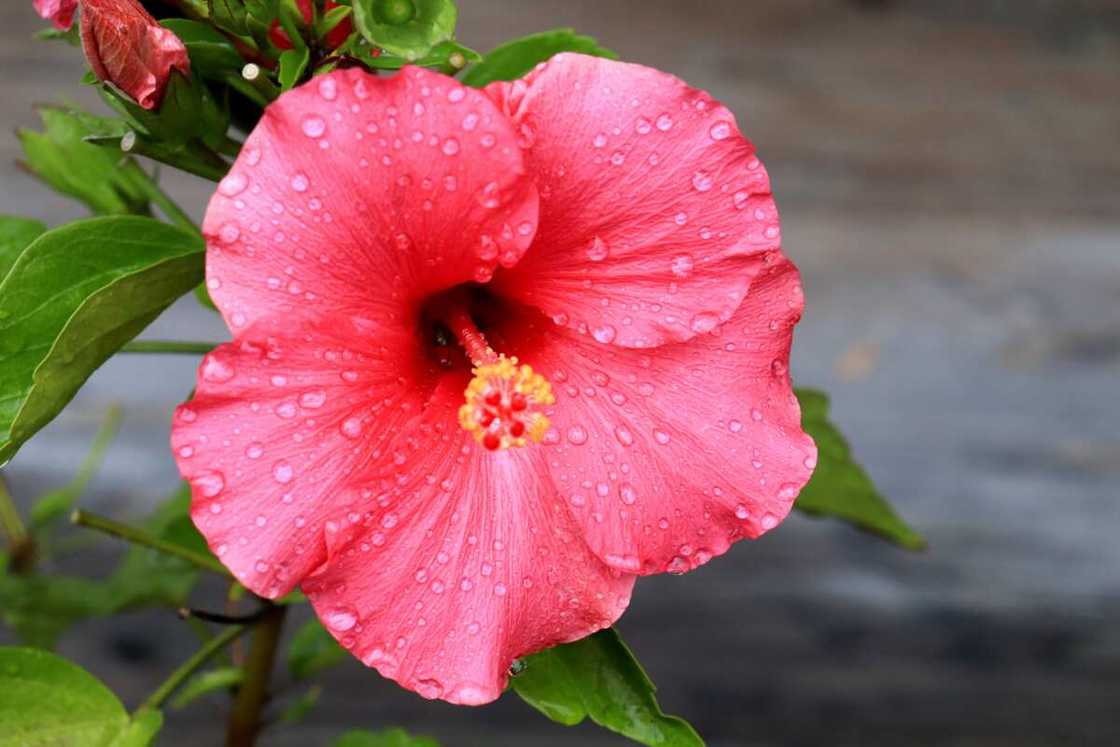
Source: Getty Images
Numerous species of this large, showy flower exist in different parts of the world. However, it is highly valued in China and regarded as a symbol of fame, riches, splendour, and delicacy. Each year, China holds the annual Hibiscus Festival. In Hawaii, hibiscus symbolises femininity, while in India, it is a sacred plant.
11. Cherry blossom
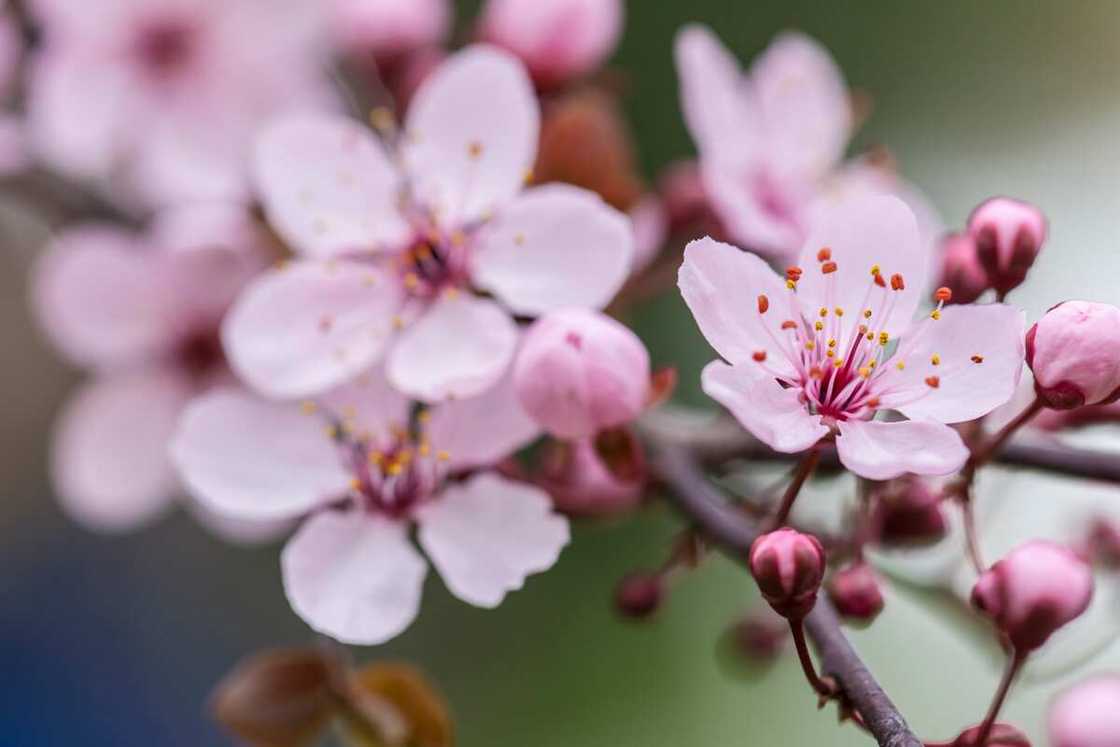
Source: Getty Images
Cherry blossoms are popular flowering trees in China and other Asian countries. Different species have varying flower colours. In China, they represent feminine beauty, power, and mystique. However, the flowers symbolise spring in Japan, and the flower-viewing tradition is called hanami.
12. Plum blossom
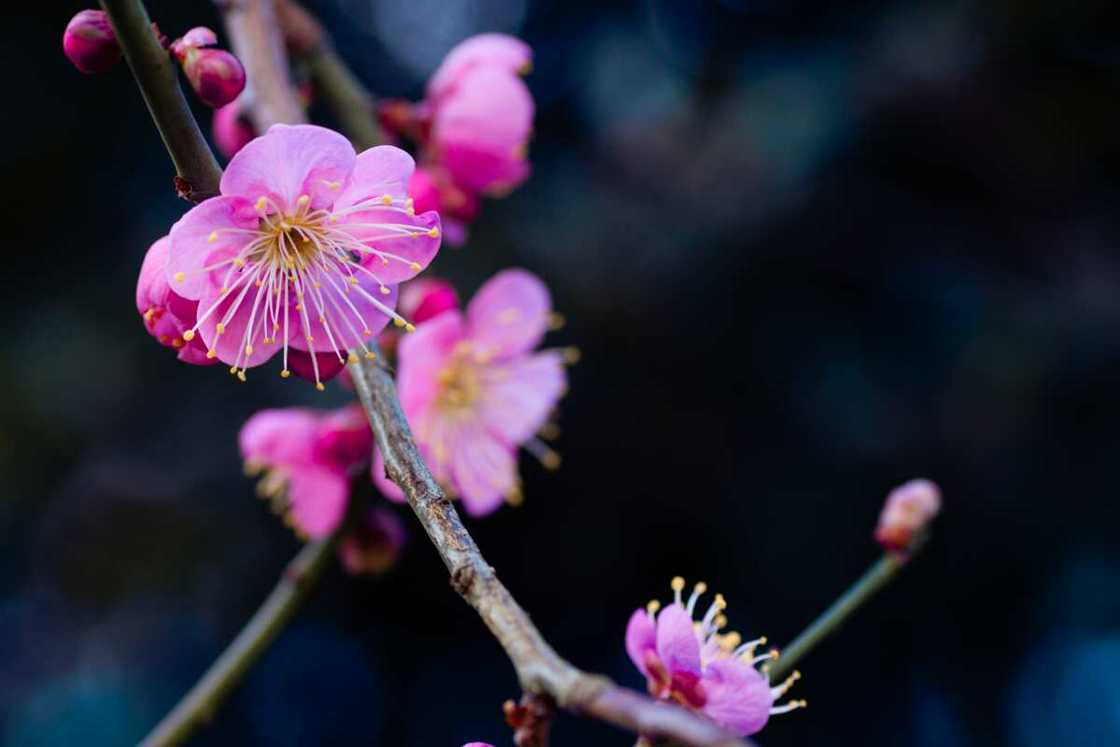
Source: Getty Images
Plum blossoms are another common flower variety in China, with numerous species. They come in white, pink, and red and usually bloom in late winter or early spring. Plum blossoms are considered the Chinese national flower and symbolise resilience, perseverance, new beginnings, and hope. They also have a delicate and sweet scent.
13. Chrysanthemum
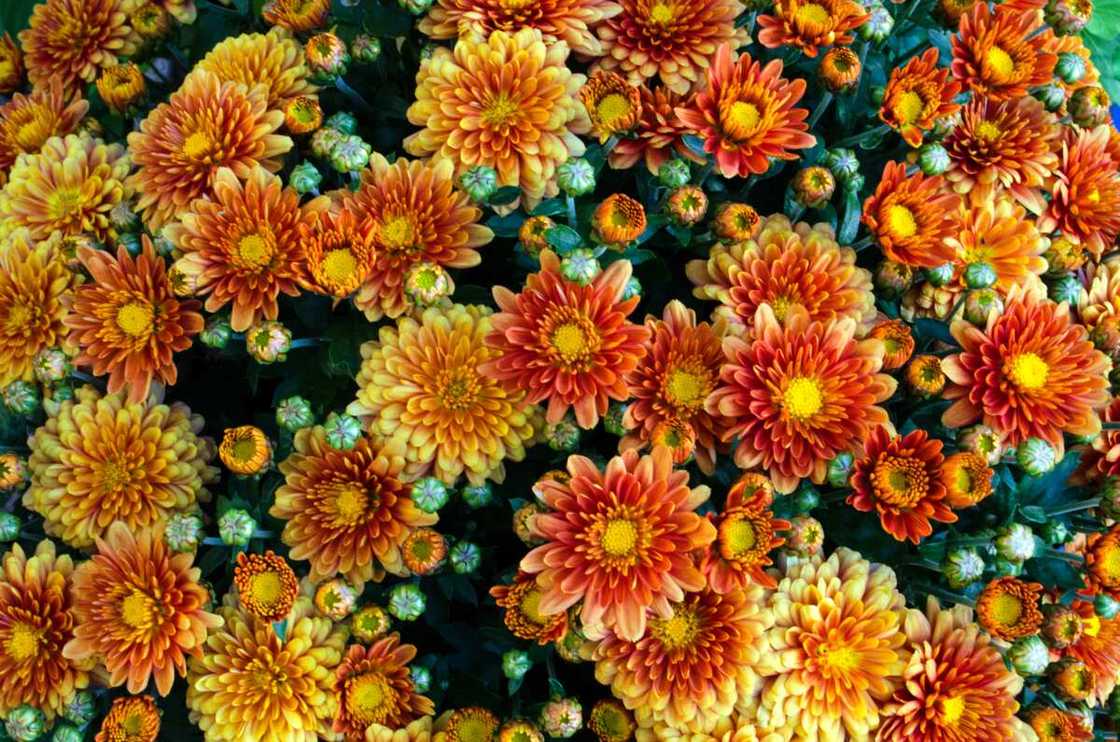
Source: Getty Images
These decorative flowers are considered members of The Four Gentlemen, along with plum blossom, orchid, and bamboo. Depending on the species, they have different shapes, colours, and sizes. These Chinese flowers for funerals represent longevity, resilience, and respect, while in Japan, they are national flowers symbolising resilience, happiness, and perfection.
14. Daffodils
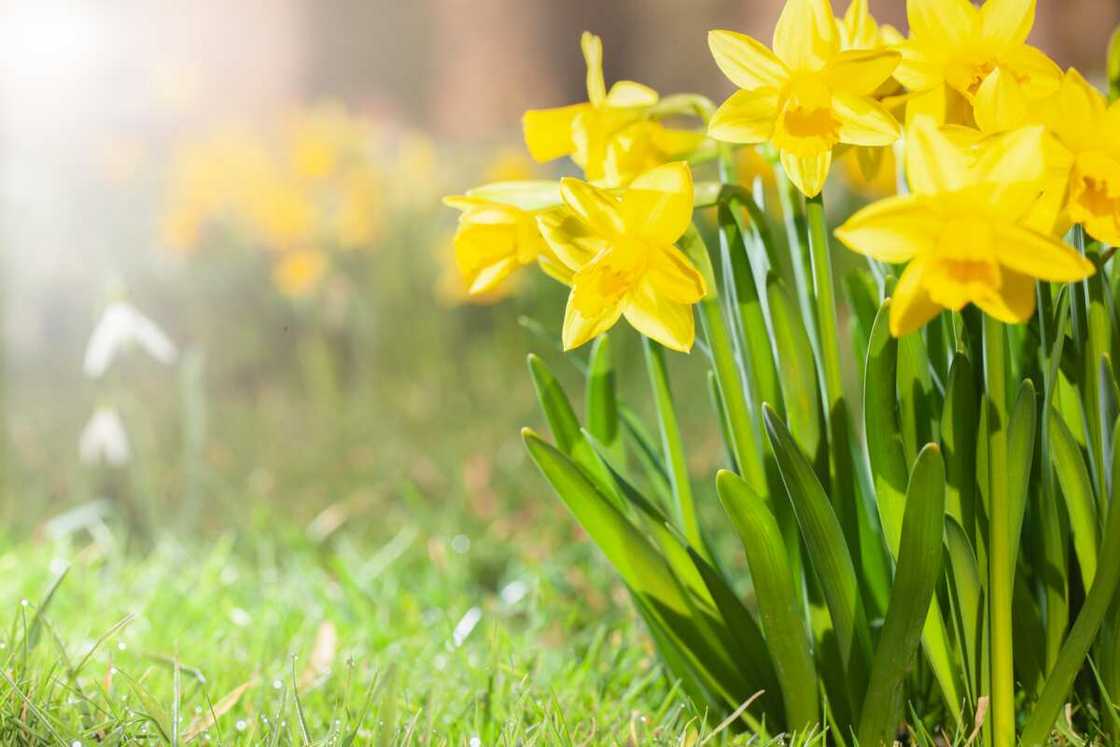
Source: Getty Images
Daffodils are ornamental plants with attractive, trumpet-like blooms. They reportedly exist in multiple colours in over 13,000 varieties, but the common ones are trumpet daffodils, double daffodils, tazetta daffodils, and cyclamen-flowered daffodils. They represent good luck, prosperity, and new beginnings.
15. Marigolds
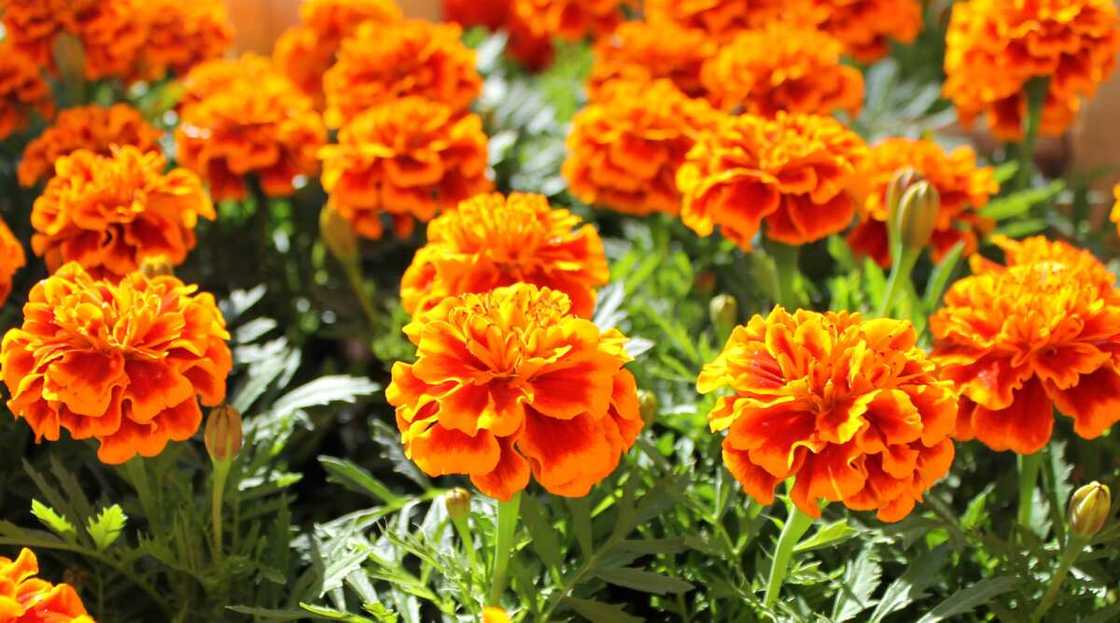
Source: Getty Images
Marigold is another popular Chinese flower in yellow, bright orange, and red hues. In many cultures, the flower represents passion, creativity, and respect. Its vibrant colours are associated with warmth and vitality. However, it is linked to the Day of the Dead in Mexico.
16. Orchid
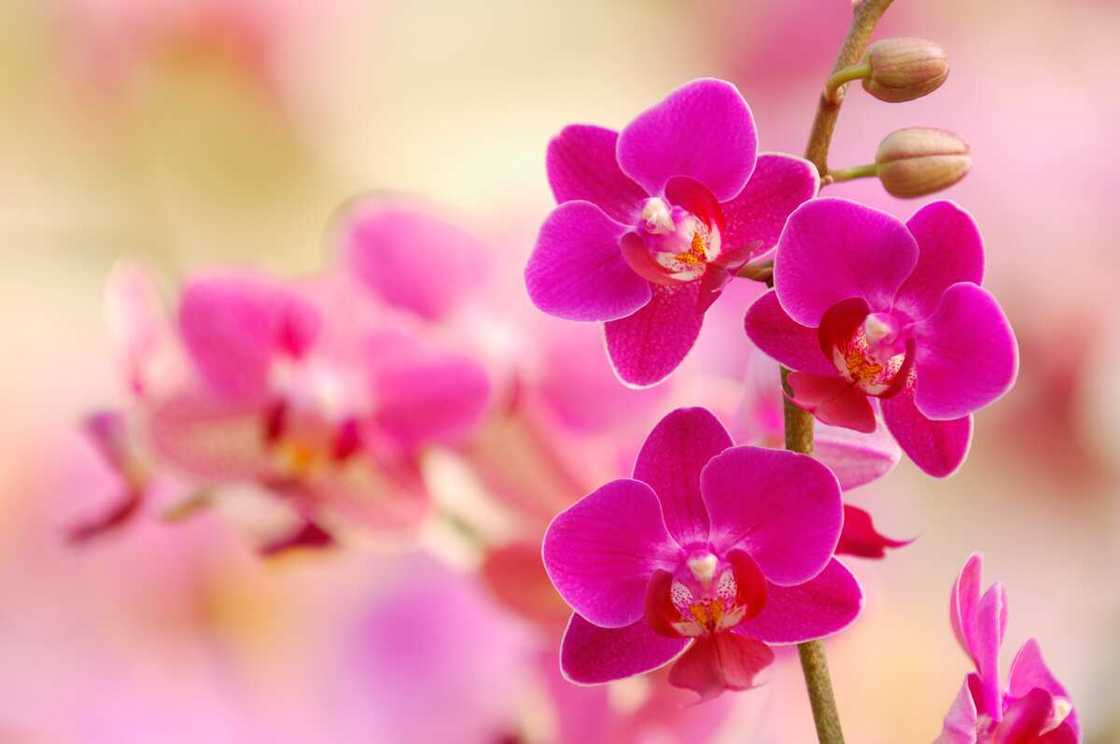
Source: Getty Images
Orchids are hardy plants capable of growing in almost any condition, regardless of how unfavourable it may seem. Despite their hardiness, they have beautiful, delicate flowers in different shapes, sizes, and colours. These Chinese flowers are an expression of respect and admiration.
17. Peony
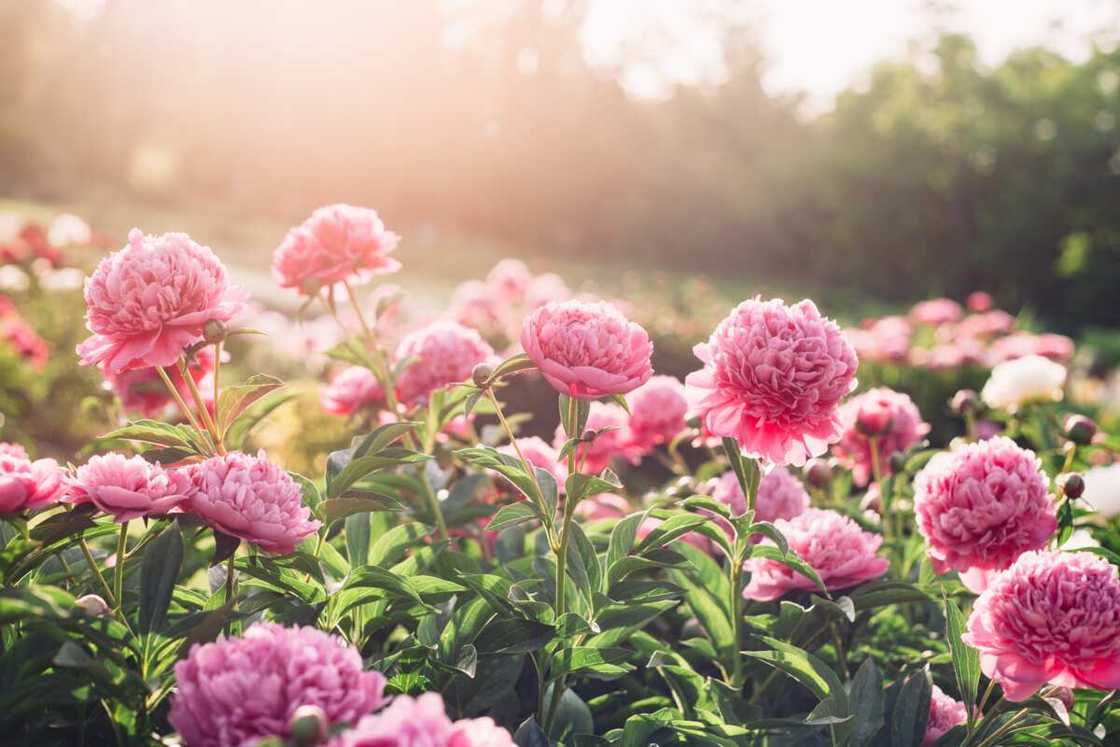
Source: Getty Images
These large, showy flowers have several species, suspected to range between 25 and 40. Their name loosely translates to the most beautiful, and they are a valued flower in Chinese classical art. They symbolise pride, honour, prosperity, love and wealth.
18. Hollyhocks
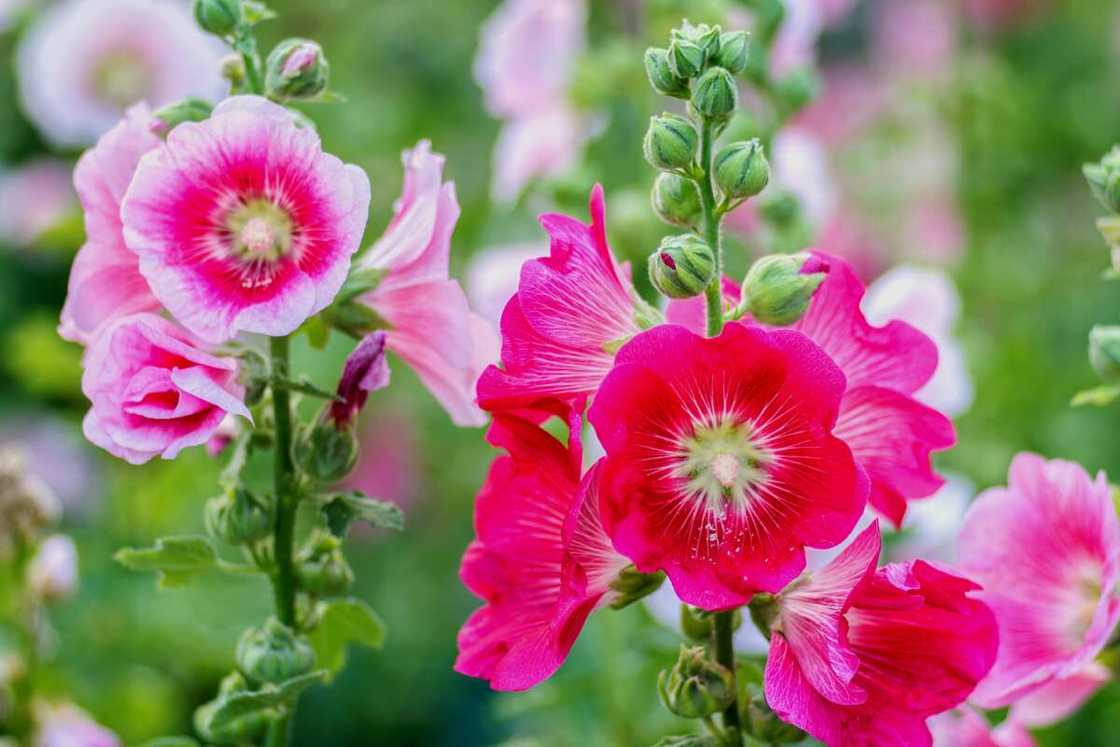
Source: Getty Images
Hollyhocks grow in several parts of China, especially Sichuan and Beijing, where they have become a popular tourist attraction. They have different eye-catching shades, including red, pink, orange, yellow, and purple. Due to their ability to grow in harsh conditions, they symbolise durability, fertility and perseverance.
19. Magnolia
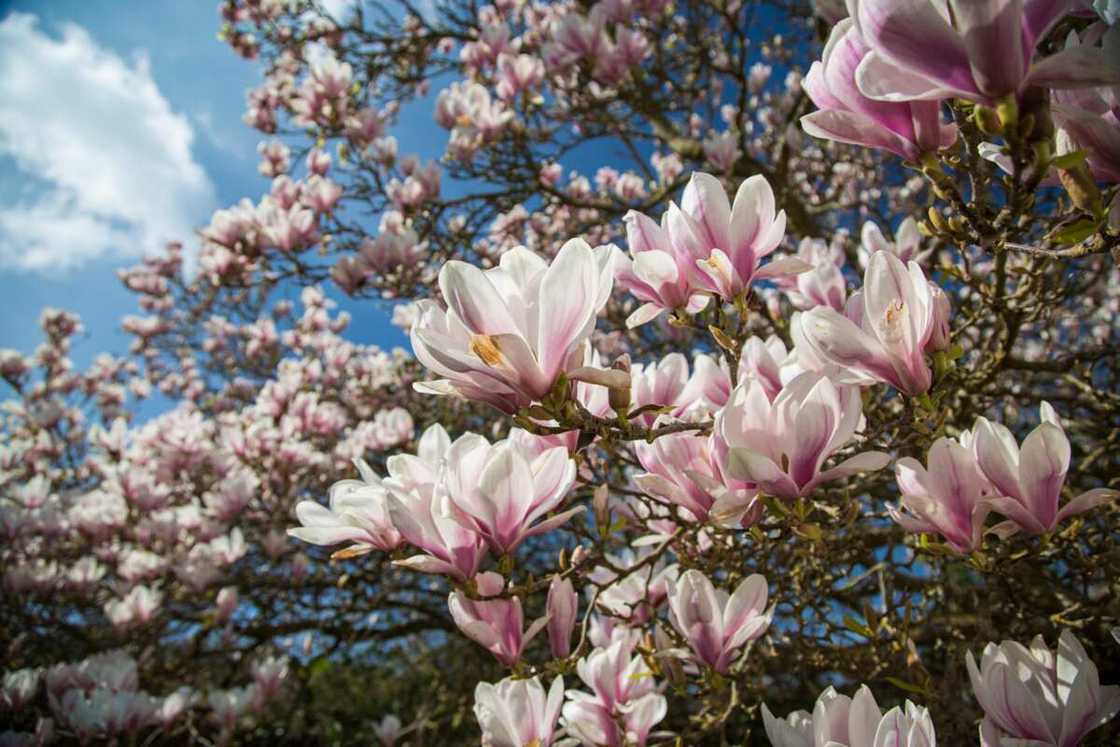
Source: Getty Images
This fragrant, cup-like or cup-like flower is most common in China. It is recognised for its sweet and spicy scent and has multiple hues, including purple, white, pink, yellow, and green. Each of its colours has a meaning, but generally, the flower represents perseverance, honour, and dignity.
20. Azalea
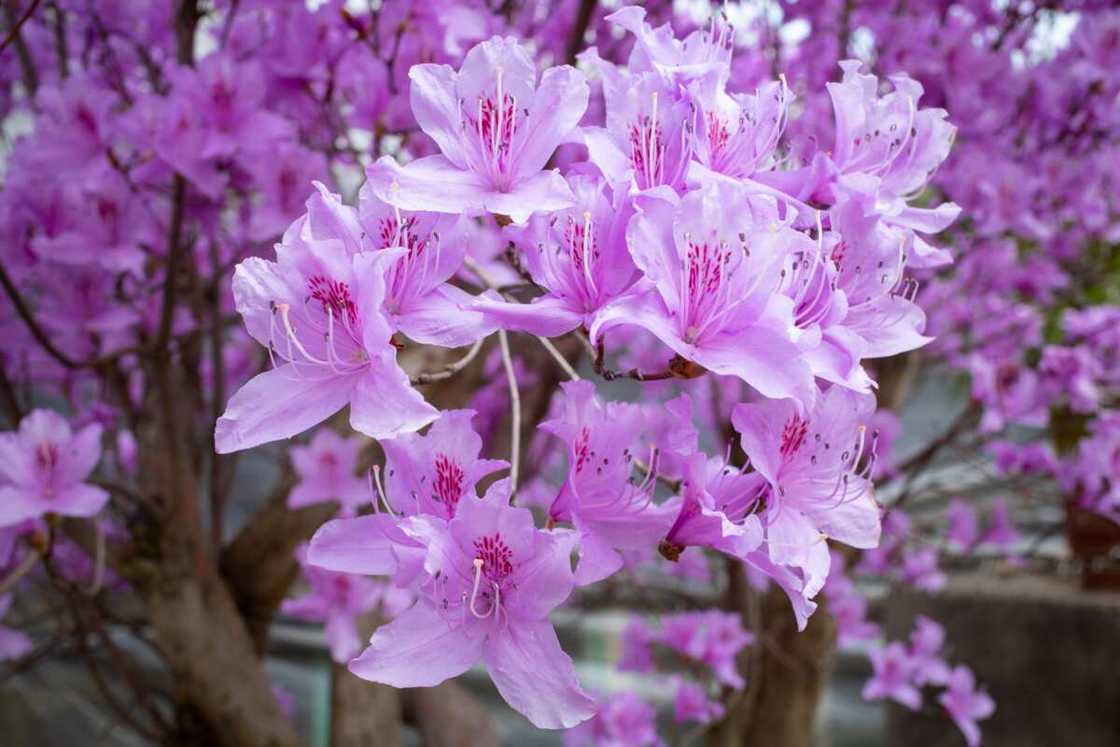
Source: Getty Images
Azalea flowers have a striking appearance and vibrant colours, such as red, pink, purple, white, and orange. These symbolic flowers are associated with home and are usually present to parents, other family members, relatives, and friends. They symbolise responsibility and caring for yourself and the people around you.
21. Baby’s breath
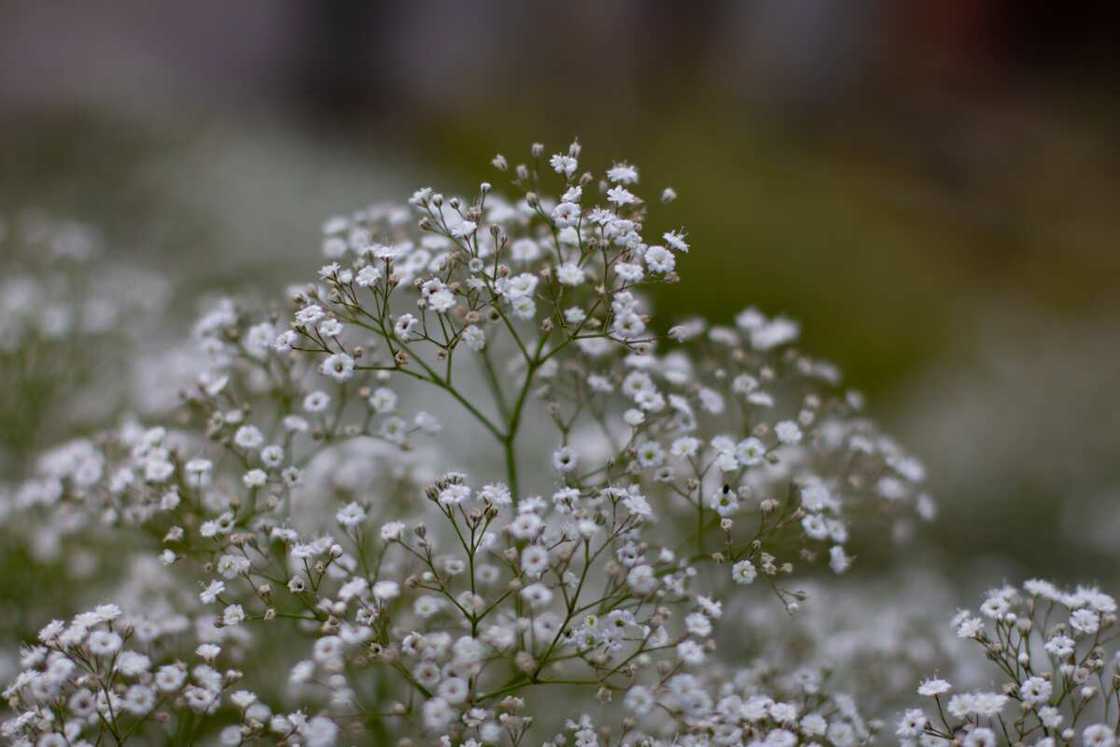
Source: Getty Images
This Chinese flower is mainly grown for decoration due to its misty effect. It has approximately 150 varieties with only a few colours, including pink, red, and white. The flower depicts youthful love, innocence, and purity.
22. Begonia
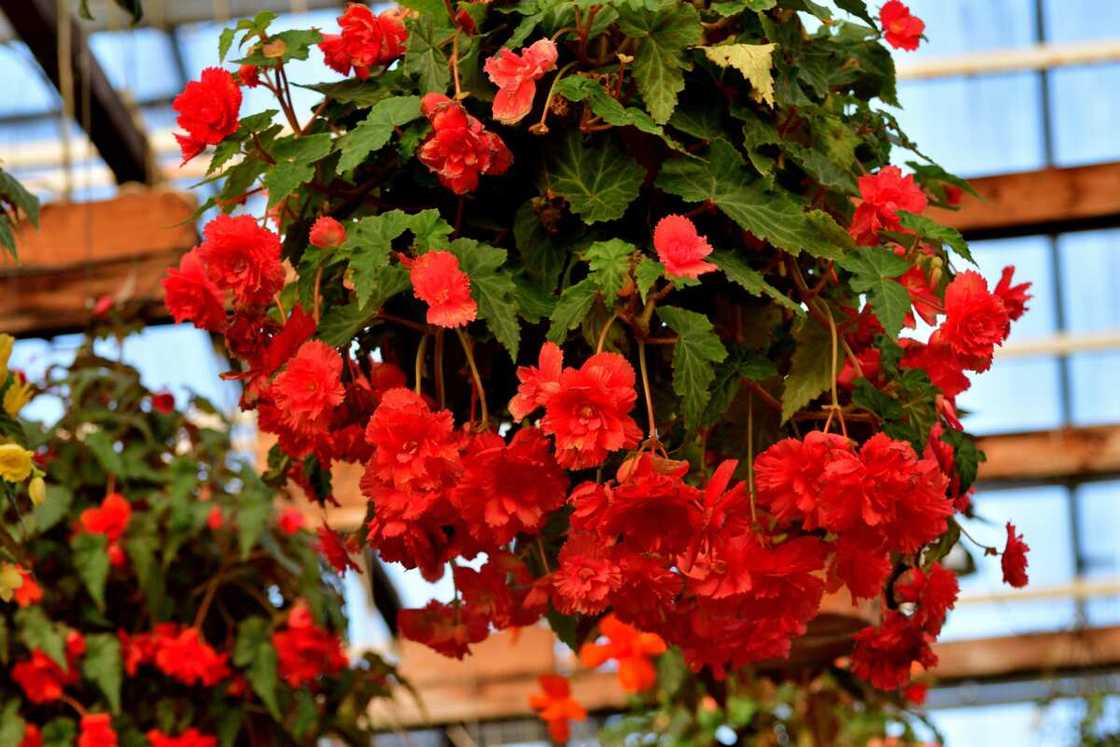
Source: Getty Images
Begonia is a common flower in Chinese culture. However, it gained immense prominence worldwide after the anime film, Big Fish and Begonia. The flower has striking blooms in red, pink, and orange. Begonia represents caution, foreboding, and transitional phases in life.
23. Camellia
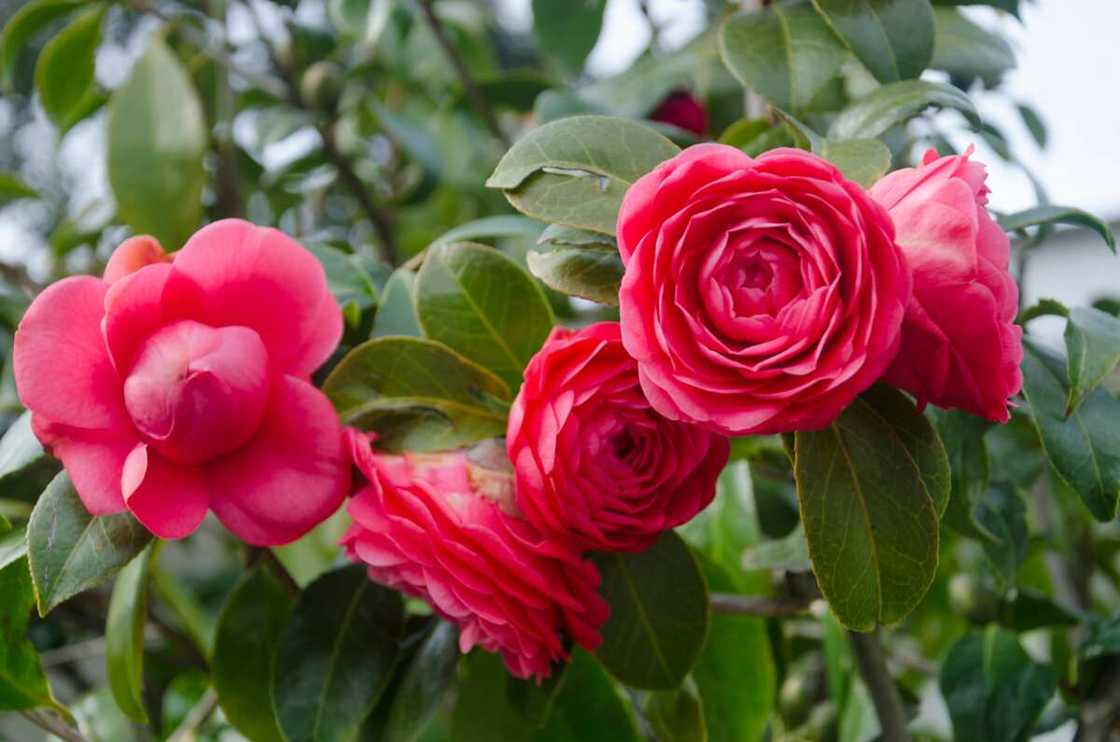
Source: Getty Images
This ornamental Chinese flower has approximately 220 varieties. It is large and has brightly coloured petals in different hues, including pink, red, yellow, and white. Camellia, regularly featured in Chinese art, means romantic love, devotion, adoration and care.
What is a traditional Chinese flower?
A traditional Chinese flower has a long history and is used in the country for various purposes, thus holding a crucial meaning to the country. Plum blossoms are usually considered the Chinese national flower.
What is the most popular Chinese flower?
Several Chinese flowers exist. While some have become popular due to their fragrance, others are known for their brightly coloured petals. Some top flowers are plum blossom, hibiscus, and Magnolia.
What Chinese flower means love?
Several flowers, including orchids and peach blossoms, are associated with love, romance, and well-being.
What flower is a symbol of good luck in Chinese?
A peony is a symbol of good luck. It is believed that it is prosperity and wealth.
From striking peonies representing pride, honour, and wealth to misty baby’s breath symbolising youthful love, innocence, and purity, Chinese flowers have a special way of expressing emotions. Depending on their types and meanings, they can be used in various events, including graduation ceremonies, funerals, and birthdays. Therefore, it is important not just to appreciate their beauty but also their meanings.
Legit.ng recently published the meaning of spider lilies, which originated in China, Japan, Nepal, and Korea. They are as beautiful as other Chinese flowers, but what do they mean?
Spider lilies come in numerous varieties and different colours. Each colour has a meaning. Find out what each shade of spider lily means and how it is used.
Source: Legit.ng


